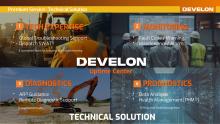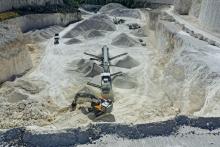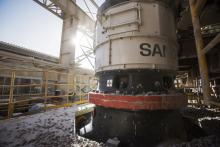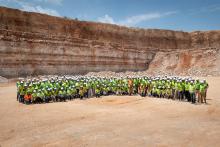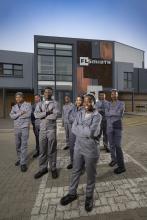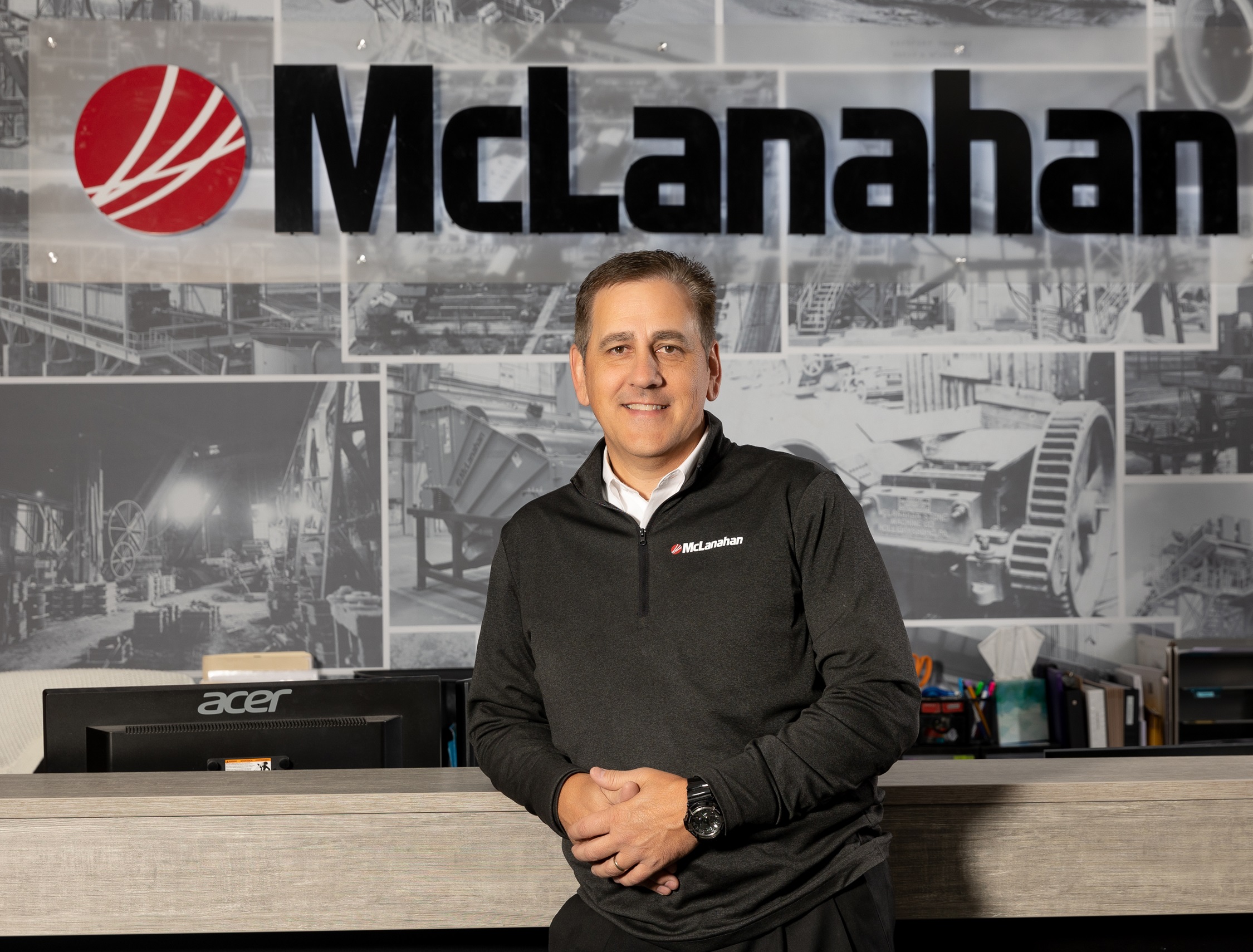
McLanahan Corporation president and CEO Sean K. McLanahan represents the sixth generation of the multi-industry business's family ownership and management. At the recent AGG-1 Academy & Expo 2024 exhibition at Music City Center in Nashville, Tennessee (25-27 March), he spoke to Aggregates Business about McLanahan's growth strategy, current aggregates and minerals processing customer preferences and trends, and his approach to business leadership.
McLanahan's large presence at AGG-1 befitted a company that has long been among the heavyweights on the global aggregates and minerals processing solutions scene.
Founded in 1835 by James Craig McLanahan and two investment partners known only by their last names, Evans and Devine, McLanahan is now led by Sean McLanahan, who oversees the executive management team and sets the corporation's strategic direction and overall business development.
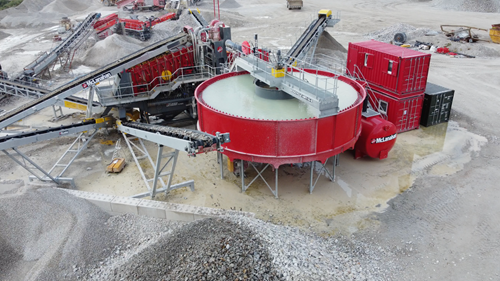
So, how does McLanahan's president and CEO think the corporation is currently performing in the global aggregates solutions marketplace? "We are performing very well. Over the last five-plus years, we've seen substantial growth in our infrastructure and worldwide representative dealers' ability to market our brand to customers.
"In some places, we go directly to the market as it serves us better. In other places, we rely on a representative company that introduces us to customers and acquires sales leads. We also have full dealers that stock machines and machine parts and have field service capabilities.
"We are seeing high demand [for equipment and solutions] in C&D [construction and demolition materials] markets. We have put great effort into developing products for those customers and the accompanying flow sheets. Many C&D customers want us to work with them to deliver products they can sell 'out the door'. We also see a lot of general quarrying crushing and screening activity."
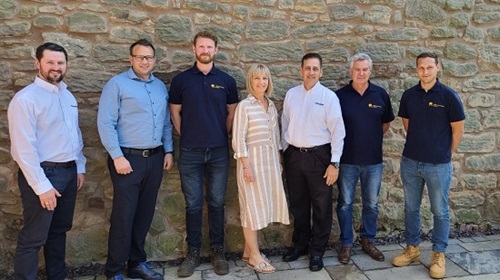
Sean says the 2022 acquisition of CMB International [CMB], a manufacturer of crushers, screens, feeders, and conveyors based in Leicestershire, England, has helped offer a wider range of solutions for quarrying customers. CMB is arguably most famous for its RubbleCrusher brand of compact crushers, which can be mounted on wheels, tracks, or skids and pulled behind a truck.
"The CMB acquisition particularly helped us on the customised screens side of our business," Sean explains. "We can now really help a customer by installing a new screen that fits exactly into their stand without any changes to their operational structure. We may give them a more efficient screen with a better drive arrangement.
"All our products come in a great standard range, but we can always customise if a customer needs something unique to their plant or a requirement they have due to a lack of water or the presence of too many material fines."
Sean's deep knowledge of the minerals and aggregates processing industries and McLanahan's business operations are based on a wealth of experience. He began his career with the company in 1994 after earning a Bachelor of Science in Industrial Management and a Minor in Economics from Indiana University of Pennsylvania. A popular and highly respected member of the National Stone, Sand, and Gravel Association ( NSSGA), the King Coal Club, and the National Mining Association (NMA), Sean was elected to the NMA board of directors in 2018.
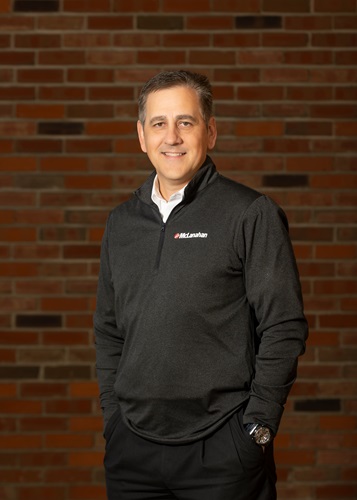
Asked about aggregates and minerals processing customer trends and challenges, Sean responds: "Power requirements and fines recovery are two big issues, as are tailing ponds in the United States. It is getting harder and harder for many American companies to have tailing ponds and get a permit to use them, especially in states where water is more scarce.
"We are close to doing a deal with one customer who has been buying over a million gallons of water monthly. They could use a McLanahan filter press and thickener [tank] to recapture 90% of the water, significantly reducing their expense."
Sean says a lack of in-house personnel is also a big challenge for mining customers. "As fewer people work at their mine sites, they rely more on equipment manufacturers for field service capabilities or plant operation. We do a lot of plant assessments and offer recommendations for more efficient plant operation. In years past, they would have people within their company who would have gone around doing audits."
Last year, McLanahan acquired Diefenbach, an Italian manufacturer of filter presses and thickeners. "Diefenbach and the earlier acquisition of CMB have helped us round out our product range and illustrate what we are trying to do for our customers," notes Sean. "We had developed a McLanahan filter press, but Diefenbach's offer was fully developed and much broader, allowing us to get further into the marketplace while growing Diefenbach's market share.
"With our [McLanahan and Diefenbach] filter presses, we now have many opportunities to help customers from the crushing side down to water management. There are small product range gaps, but now we have the bulk of what we want. We've also taken a little side-step by acquiring the Anaconda [crushing and screening] brand and RubbleCrusher as part of the CMB deal.
"The CMB acquisition has helped us with our screening and cone crusher offerings and field servicing capabilities in the European market. RubbleCrusher can piggyback on McLanahan dealers and Anaconda's, being the baby within the latter's machine range.
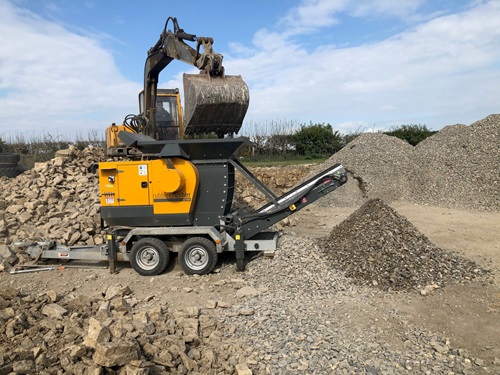
"We see great potential for the RubbleCrusher, particularly in cities and the C&D waste recycling side. Given the permitting required for the demolition of buildings, you can't get permits to take trucks on-site anymore. From what we've seen, it's still an emerging market. It will be another ten years before it's fully global, but there are places in Europe and the United States where compact crushers like RubbleCrusher are already in use."
Sean believes the Diefenbach acquisition will help McLanahan further demonstrate its commitment to sustainability. "It does that through water conservation with filter presses and thickeners. We are trying to help our customers face their issues, which are increasingly related to water management and fine recovery. There are no hundred-year sites anymore where you can go in and put a plant. There are only sites giving you five years of production, and then you have to move your plant. This has made modular plants huge for us."
Highlighting McLanahan's investment in its manufacturing capabilities, Sean says: "We recently built new manufacturing facilities for Anaconda and McLanahan products in Northern Ireland. We are also looking at ways to grow Diefenbach's manufacturing side. We're also expanding our McLanahan manufacturing footprint in North America. Demand is so high for our products that we look everywhere at expansion possibilities."
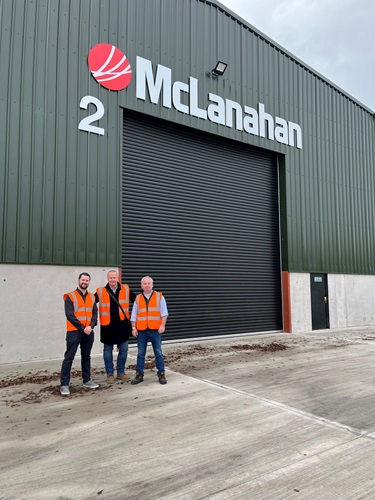
Sean says McLanahan's strength and success start with its dealer network. "We have some of the best dealers in the world. We are always looking for more opportunities to grow. There are marketplaces we don't yet have the resources to explore fully, but we will get there. It is often about finding the right dealer partner that can allow us and them to grow."
Aggregates Business is curious about how Sean sees his leadership style. "I'm the sixth generation of our family. My dad is 85 and still doing well. I like to think I have a collaborative style. I like to hear lots of opinions and choices. I want everyone to have a say on what they think is a good solution to whatever issue or problem we face. Ultimately, I may make a decision, but 80% of the time, it's been reached collectively. I don't have to be the face of McLanahan. We have such great people. They are the face of the company, out there every day working with our customers. They are the ones helping to build our company and enabling us to grow."
What about the up-and-coming seventh McLanahan family generation? Is there some interest among them in one day taking over the business's leadership? "Our youngest are 14 to 21, and they have some interest in the company. It is hard not to be pulled into the business. I didn't know that growing up, I would come into it. I studied industrial management and economics and had opportunities to do some things, but I thought I had a great opportunity to get into McLanahan's sales department. I worked there for ten years, travelling to see our customers and getting to know the pains they went through. Then McLanahan started doing some acquisitions that I helped integrate within the company. My management opportunities grew from that.
"The best part of my work is interacting with the hard-working, salt-of-the-earth people who run their businesses across the many industries we serve. You hardly ever meet a bad apple, which makes things fun. I am also extremely proud of the people who work within McLanahan and humbled by their expertise and dedication to the company and our customers.
"The flip side of my work is all the usual stresses of running a business. Every business has its ups and downs due to issues like changing markets, infrastructure or other limitations that need to be addressed, or geopolitical challenges. All that is constantly coming at you, and you need to figure out how to navigate it. It's the least fun. As we've grown so much bigger, it's become much more difficult to ensure we stay ahead of the game on all issues."
So, what ambitions does Sean still have for McLanahan? "I want to continue to grow the company, and we have some further acquisitions in mind that will help us do that. We also need to grow our brand globally as best we can. We prefer a methodical growth that takes time. That's okay, though, as I would rather things were done right."

